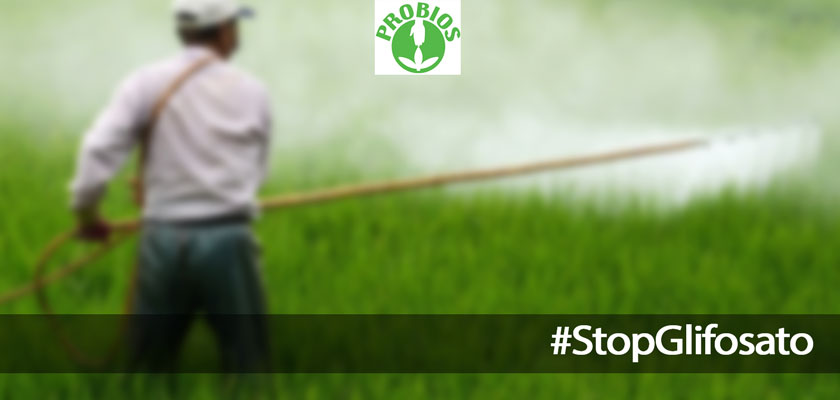
Once again, nothing is still clear and there has been no vote during the extraordinary meeting of the EU countries, that on the 25th October had to express themselves on the proposal of the EU commission to renew the authorization on the use of glyphosate, the protagonist of a scientific debate about its carcinogenic effects. The vote has been delayed to a further meeting, which still needs to be scheduled.
The committee presented a new proposal: no renewal of the authorization every ten years, but every 5-7 years instead. It was an attempt to negotiate, after, the day before, the European parliament approved a completely different solution, which was to slowly limit the use of glyphosate and to definitely abandon it within the 15th December 2022.
Before the vote of the members on the renewal of the authorization on the use of glyphosate, a survey published on the 24th October by the international consumer association “SumOfUs” and by the movement “WeMove.EU”, showed that the major part of the people in Germany, France, Italy, Portugal and Greece does, instead, agree on the immediate bound of this pesticide. According to the survey 80% of the German, 79% of the French, 84% of Italian, 77% of the Portuguese and 81% of the Greek population completely dissents on the use of glyphosate and would like to immediately bound its use.
An expected result, considering the growing attention of the people towards an organic lifestyle and the choice of many companies – like Probios – to specialize on the distribution of vegetarian organic food.
“Probios was in fact born by the strong belief that selling organic products is not just a matter of business, but it is also a vehicle to favor those behaviors that will contribute to make our world a better place. Selling certified organic products means in facts choosing companies that demand an accurate selection of harvesting methods, that do not rely on pesticides, antiparasitics and chemical fertilizers that pollute our word, our water and our air”, explains Fernando Favilli, Probios' CEO.
In fact, glyphosate is a non-selective pesticide, which means a particle that indiscriminately eliminates every infesting plant, with severe consequences on the environment and the biodiversity. Introduced in 1974, it has been developed by the chemist John Franz for the Monsanto corporation and is nowadays the most used fertilizer in the world, both for gardening and agriculture.
According to the International Association on Cancer Research, this substance might have carcinogenic properties, and also OMS thinks so; many scientists are convinced that glyphosate affects our food, especially plants, provoking terrible consequences on our health: a research published on “The Lancet Oncology” confirmed that, basing its studies on a three year research conducted by 17 experts in 11 countries, that revealed a connection between the exposure on this substance and the Non-Hodking lymphoma, the higher percentage of childhood leukemia and the neuro-degenerative diseases like Parkinson.
However, part of the scientific community is skeptical on these worrying researches, like EFSA, the European Food Safety Authority, who expressed a more reassuring opinion, saying that “it is not likely for a pesticide to have such a high cancer-causing risk of on the humans”, even though it seems that its evaluations might have been financed by the same corporations who produce glyphosate.





